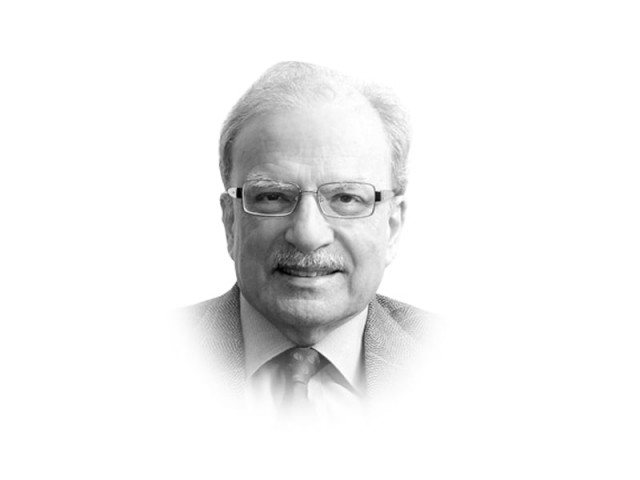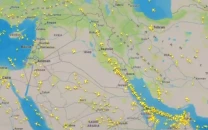Talibanisation of Afghanistan and rise of a new global order
Pakistan’s past involvement with the group, Taliban-led administration in Kabul would be friendlier towards Islamabad

The impact of the fall of Kabul to the Taliban on August 15, 2021 will have consequences that will go well beyond the country’s immediate borders. Pakistan, undoubtedly, would be the most affected country with the passage of power into the hands of the Taliban. But looking at the developing situation, there will be reordering of relations among countries bordering Afghanistan or those with strong interest in the area of which Afghanistan is a part.
There were prominent voices from the Trump era that advised Biden not to recognise the Taliban regime. Among them was Nikki Haley who was the Republican governor of South Carolina before being sent as the US ambassador to the United Nations by President Donald Trump. “Shockingly, the Biden administration has yet to rule out recognising the Taliban,” she wrote in an Op-Ed article for The Washington Post. “The administration is ‘taking stock’ of the situation, while calling on the tyrannical group to protect the Afghan people’s rights. Hopefully, Biden is just posturing until we get all Americans out.”
She was of the view that the Taliban of 2021 are not all that different from the Taliban of 2001 when America sent in its troops to push them out of Kabul. “There’s precedence for holding back. It took 30 years for the United States to recognise Communist China and 20 years to recognise Communist Vietnam,” she continued. While Britain and the European Union are not rushing in to recognise the Talban regime in Afghanistan, “China and Russia have already cozied up to the Taliban, as they believe a terrorist-run Afghanistan weakens and endangers the United States.” She was also totally opposed to sending any economic or financial assistance to the Taliban-led Afghanistan and pleaded for resisting any United Nations attempt to admit the new Afghanistan into the organisation.
It doesn’t take deep reflection to conclude that three countries have lost as the Taliban have taken control of Afghanistan. They are United States, Britain and India. We should probably add Japan and Australia to the list since in the global refiguration that is underway, these two along with the United States and India constitute what former Japanese prime minister called the “quad.” The quad idea has been fully embraced by the Biden administration. Three countries have come out on the winning side. They are China, Russia and Pakistan.
Vladimir Putin, the Russian President, made his first public comments on the Afghan situation at a joint press conference on August 22 in Moscow with German Chancellor Angela Merkel who was preparing to retire from the job she had held for several years. He said he knows Afghanistan well and understood that it was counterproductive to impose external forms of government. “Any such sociopolitical experimentation has never been crowned with success and only led to the destruction of states, and degradation of their political and social systems.” He said that “it is necessary to stop the irresponsible policy of imposing other people’s values from outside, the desire to build democracy in other countries, not taking into account either historical, national and religious characteristics, and completely ignoring the traditions by which people live.” He was speaking not just about what the Americans and the West had attempted to do in Afghanistan but had in mind also the interference by them in the countries of Eastern Europe that were once part of the Soviet Union.
He said that many Western politicians were waking up to the fact that “you cannot impose your standard of political behavior or social organisation on others because others have their own religious and cultural specification.” In making these comments he ignored what his country had attempted to do precisely in Afghanistan in the 1970s by first installing and then militarily supporting a Communist government in Kabul. That experiment was resisted by several mujaheddin groups. It was their inability to agree to a system of governance that led to the emergence of the Taliban as a political and military force. In recent years, Russia has fostered contacts with the Taliban some of whom worked for the groups that fought against Soviet occupation. Recently Russia had flexed its military muscle by holding war games with Tajikistan’s military. Following it there were exercises with the militaries of Tajikistan and Uzbekistan. This was done to prevent the spillover of extremism from Afghanistan to the Muslim nations of Central Asia.
China has the same concerns; it fears that a Taliban regime in Afghanistan may export its version of radical Islam to the restive region of Xinjiang that has a short border with Afghanistan but a much longer one with Pakistan. China has spent years in the efforts to make the Uighurs who live in the region more Chinese. But the Chinese have other interests in Afghanistan. Stopping the flow of Islamic ideology would be one of the reasons of China’s abiding interest in the region.
But there are other reasons as well. It would like to exploit the enormous amount of mineral wealth the country sits on. It is valued at over a trillion dollars. Beijing has already made large investments in developing copper mines in the mineral-rich areas south of Kabul. Once the minerals are extracted from the earth, they need to be processed and transported to the points of their use. This needs a system of roads and railways of which there is very little in Afghanistan. China has made no secret of its desire to bring Afghanistan into the China-Pakistan Economic Corridor programme of investment. CPEC is a part of the much larger and more ambitious Belt and Road Initiative, BRI, in which the powerful Chinese President Xi Jinping is taking personal interest, and which will alter the Central Asian landscape. Once in a one-on-one meeting with me, Zhu Rongji, the then Prime Minister of China, said that his country was the only large landmass nation that was landlocked on three sides. It wanted to open to the West and the only feasible way to do that was to build a road and rail corridor for connecting China’s West with the deep-water port of Gwadar in Balochistan province. That conversation took place in 2013. When the Chines think about the future they think long.
There is no doubt that given Pakistan’s past involvement with the group, a Taliban-led administration in Kabul would be friendlier towards Islamabad. It would be prepared to work on a series of infrastructure projects that would closely knit Pakistan with Afghanistan but also with the landlocked countries of Central Asia. If this were to happen, China would be interested in extending CPEC into these landlocked states. The under-development port of Gwadar could become a major port on the Arabian Sea. In fact, with most of Chinese trade carried through the port, Gwadar will be turned into one of Asia’s most important gateways.
Once the Taliban government settles down in Kabul, it will move fast to develop relations with the countries in its neighborhood. China will work hard to keep the Americans out of this area. Afghanistan may not become a part of the geographic space over which Beijing and Washington are fighting.
Published in The Express Tribune, August 30th, 2021.
Like Opinion & Editorial on Facebook, follow @ETOpEd on Twitter to receive all updates on all our daily pieces.














COMMENTS
Comments are moderated and generally will be posted if they are on-topic and not abusive.
For more information, please see our Comments FAQ